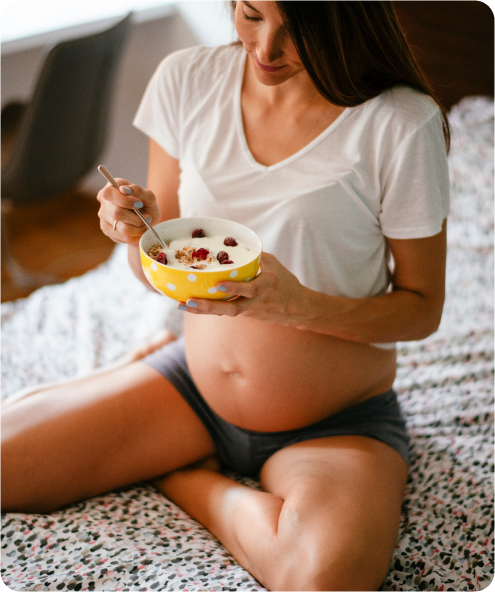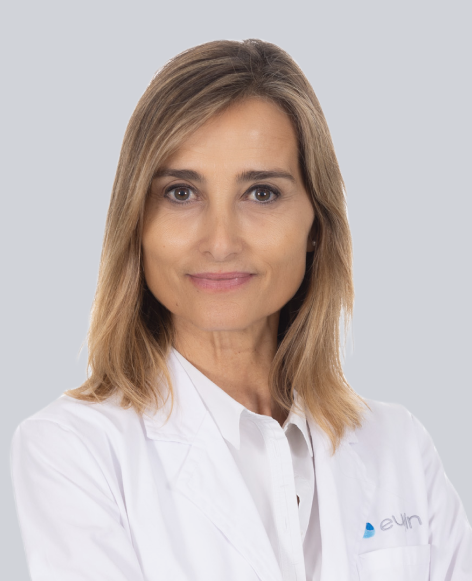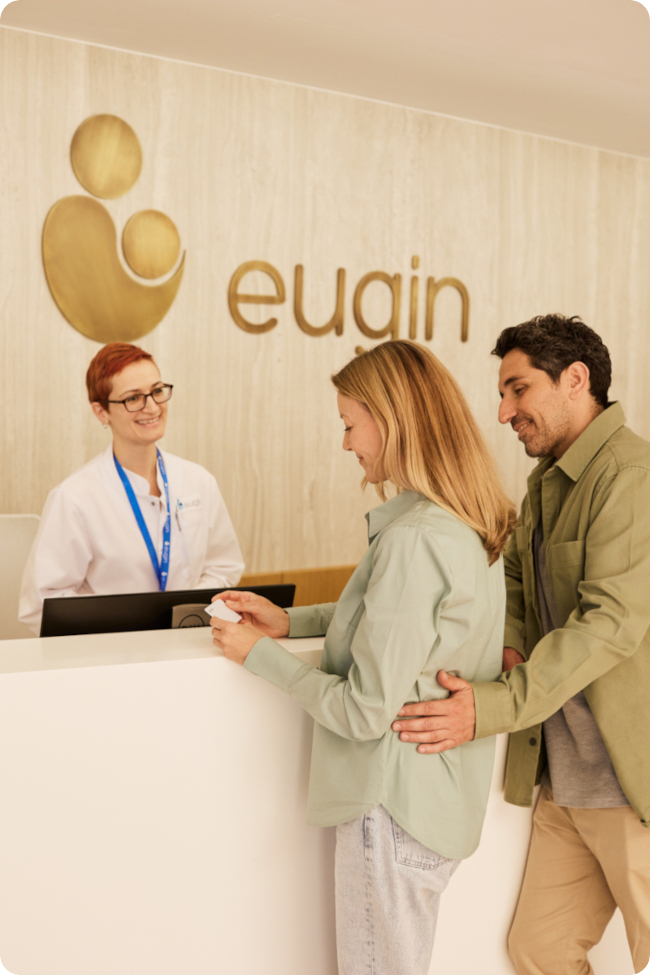The nutrition and dietetics unit
Aiming for optimal nutrition at all times and for each person, the Nutrition and Dietetics Unit offers all the advice needed to achieve the highest level of health and quality of life for its patients. And all of this is applied both in fertility treatments and in any life circumstance in which special nutrition is required.
At Eugin, the nutrition and dietetics unit works in perfect coordination with the rest of the clinic’s departments and is integrated within the assisted reproduction treatments. Thus, patients can always resort to it to address, in general, nutrition when seeking to get pregnant, before undergoing treatment, during pregnancy and post-partum, as well as in cases of being overweight and obesity, digestive system alterations, menopausal and perimenopausal symptoms, food allergies or intolerances, eating disorders, stress or smoking, or to learn new healthy habits that improve their quality of life.

What is the difference between nutrition and dietetics?

Nutrition
Nutrition is a discipline that focuses on the nutrients that are acquired through food, and how they benefit the body, as well as guidelines focused on the needs of each individual.
Although no distinction is made between healthy patients and those with illnesses, nutritionists specialise in treating people with health problems in order to adapt the diet to each circumstance.
Dietetics
On the other hand, dietetics focuses on the act of eating itself, in other words, on the dietary patterns and goals that each individual wants to achieve through food.
Dietitians generally treat people without health problems, by helping them to adjust their eating habits in a way that is in line with the goals they have set for themselves.
Ultimately, in many cases, both disciplines complement each other in order to provide the right kind of guidance for each person at different times in their lives, including seeking pregnancy, pregnancy itself and breastfeeding.

How important is nutrition to our health?
Optimal nutrition goes far beyond weight and, alongside the right amount of physical activity, stress management and proper sleep quality, they are the building blocks of health. In this regard, the right nutrition can:
- Have a positive influence on fertility.
- Help the pregnancy and post-partum process go as smoothly as possible.
- Alleviate the effects of the menopause.
- Regain or maintain a healthy weight.
- Improve the digestion process.
- Lessen and treat problems due to intolerances.
- Prevent eating disorders.
- Be aware of your cardiovascular health, especially from the age of 40 onwards.
- Contribute to a marked improvement in mood.
- Prevent age-related deficiency problems.
- Improve sporting performance.
- Increase intellectual performance.
In short, proper nutrition improves the state of health of any person, even if they are not ill. In particular, for women who are trying to conceive, good nutrition is essential to take care of their fertility and a significant help to have a problem-free pregnancy and post-partum. It is also generally beneficial for any fertility and reproductive treatment.

Nutrition in pregnancy: the importance of the food you eat
When a woman is thinking about getting pregnant, one of the essential points is to take care of her diet. Nutrition experts point out that it is important to adopt good eating habits even before getting pregnant, eating healthy, regular and balanced meals. This is not the time to go on restrictive diets, try new things or be irregular with your meals: you should prioritise fresh produce, fruit and vegetables every day and follow good habits on a daily basis.
Specialists stress that there is no miracle diet to help achieve pregnancy, while emphasising that it is essential to be aware that at key stages such as when seeking pregnancy, pregnancy itself, breastfeeding and menopause, any nutritional alteration in women can have a greater impact on their health.
It is therefore recommended that a general review of each woman’s situation be carried out and that attention be paid to the increased need for certain micronutrients during this stage, including folic acid, iodine, iron, calcium and vitamins A, B, C and D. These are all found naturally in food, but also in vitamin supplements.
Likewise, there is a list of foods to avoid during pregnancy: alcohol, too much caffeine, fish with large amounts of mercury (such as tuna or swordfish), unpasteurised milk, cheese and dairy products, and raw fish and shellfish are just some of the examples.

Nutrition and assisted reproduction
Fertility, whether natural or through assisted reproduction techniques, shares a close relationship with nutrition. In the case of patients who are going to undergo an assisted reproduction procedure, a good diet integrated into their daily routine can help to improve the environment in the area where the embryo will be implanted, especially if there are any inflammatory pathologies.
Although each situation is unique and needs to be approached individually, specialists advise, for example, to increase the amount of colourful fruits and vegetables in meals because of their high antioxidant content, compounds that help to mitigate oxidative stress that may be present in the body.
Similarly, they point out that including omega-3 products such as oily fish, nuts and seeds in the diet helps to reduce existing inflammation. Of course, it is highly recommended to cut out tobacco and alcohol, as well as a sedentary lifestyle and excessive physical exercise.
These recommendations, as well as comprehensive nutritional care, are particularly relevant in patients undergoing assisted reproduction treatments, especially in those with hormonal or metabolic disorders such as endometriosis, Polycystic Ovary Syndrome (PCOS), hypothyroidism or in cases of dysbiosis or low ovarian reserve.
Meet the Reproductive Nutrition and Dietetics Unit team




Come and visit us
We would be delighted to meet you in person, show you around our facilities and introduce you to our expert team. Visit us at:
Eugin Barcelona
C/ Balmes, 236
Phone: +34 933 221 122
Suppliers and professionals: +34 934 446 303
Eugin Madrid
C/ Alfonso XII 62, Pl. Baja A
Phone: +34 913 360 400
Suppliers and professionals: +34 934 446 303

